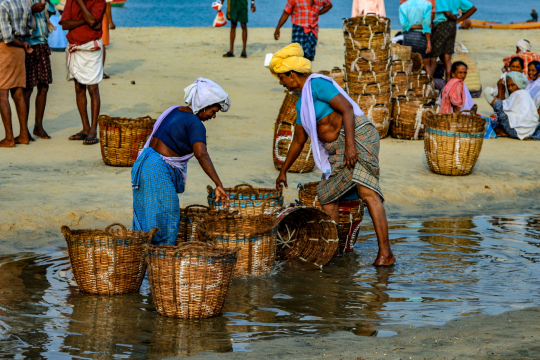Abstract
The sustainability of global fisheries has emerged as a major concern for the future of marine biodiversity. In the spheres of seafood production and consumption, strict regulation of fisheries and more recently, ethical certifications of seafood products, are favored as a means to ensure thriving fish stocks and healthy oceans. However, research has shown that such restrictions and market-driven certifications have had mixed results, with socio-ecological impacts detrimental to the long-term sustainability of tropical fisheries in the Global South. We approach this issue of fisheries sustainability in the Global South from the perspective of common-pool resources by considering the practices of seafood producers, retailers and consumers, and their inter-connectedness with marine fishing commons. We build on critical literature on commoning using data on consumption preferences of 531 seafood consumers and seafood availability in 400 seafood restaurants across 4 metros in India and examine the extent to which seafood consumption patterns and availability can facilitate or unsettle marine fishing commons. We identify patterns of selective seafood consumption and dependence on niche markets that are translated across seafood supply chains and disrupt initiatives by fishers to sustainably manage local fisheries. We then discuss efforts to increase consumer awareness and recommend building community-supported fisheries through initiatives like InSeason Fish. In conclusion, we argue that discourse in fisheries sustainability should be theoretically recast through a ‘seafood commons’ that integrates practices of diverse resource users.
Highlights
-
• Marine fishing commons in India produce highly diverse, seasonal seafood catch.
-
• Main markets that pay high prices for seafood in India are urban.
-
• Urban seafood consumption focuses on ~ 6 species groups on average through the year.
-
• A mismatch between seafood harvest and consumption disincentivizes fishing commons.
-
• Sustaining seafood supplies requires managing seafood commons.

